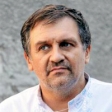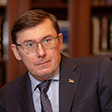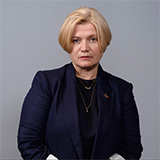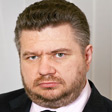Розпуск парламенту і ''євроатлантична інтеграція''
Мені доводилось неодноразово захищати Президента Ющенка у ході зовнішньополітичних дебатів, коли, наприклад, члени президентської команди не могли пояснити пресі, як насправді правильно перекладається на українську мову слово "speculation".
Але оптимістичні євроатлантичні заяви мають підкріплюватися прагматичними оцінками щодо ПДЧ і нової угоди з ЄС.
1) НАТО
Отже, у грудні – дострокові вибори, і у цьому ж місяці міністри закордонних справ НАТО будуть оцінювати, наскільки Україна готова приєднатися до ПДЧ. В умовах політичної кризи, зрозуміло, ми цей шанс у грудні втрачаємо. Однак Президент під час розпуску парламенту їде до Великобританії, потім – до Італії, і робить оптимістичні заяви.
На сайті Президента України повідомляється, що Президент Італії Наполітано "висловив підтримку Україні в її прагненні приєднатися до ПДЧ на грудневій зустрічі міністрів закордонних справ країн НАТО".
Натомість сайт Президента Італії повідомляє, що "Президент Наполітано ще раз наголосив про італійську допомогу в інтенсифікації відносин між Україною та Атлантичним Альянсом, як було підтверджено під час Бухарестського саміту минулого квітня, із повагою до вибору українського народу та духу поновлення дружби та співробітництва між сусідніми країнами". Навіть ті, хто не знають італійську мову, подивившись італійській оригінал, побачать, що чогось схожого на Membership Action Plan там немає: "Il Presidente Napolitano ha infine ribadito il sostegno italiano alla intensificazione dei rapporti fra l'Ucraina e l'Alleanza Atlantica, come confermato in occasione del Vertice di Bucarest dello scorso aprile, nel rispetto delle scelte del popolo ucraino ed in uno spirito di rinnovata amicizia e collaborazione con i Paesi vicini".
Так для чого ж видавати бажане за дійсне?
2) ЄС
У контексті неодноразових заяв про "асоційоване членство" (якого насправді немає) цікавою буде точка зору д-ра Романа Сольчаника, одного з тих західних аналітиків, який писав якісні матеріали про Україну ще до "перебудови", працював у РЕНД, є автором книжок про Україну і Росію. Коротше, як жартує п. Роман про себе, є "ветеран труда". Ось матеріал, надрукований в The Ukrainian Weekly 21 вересня. Сам Сольчаник хотів донести це до читача в Україні. Зараз, в контексті указу про розпуск парламенту, я хотів би ще раз наголосити, що ця стаття – критика Президента з позицій тих, хто хоче бачити Україну в Європі. Така критика має допомогати. Так що розміщую англомовний оригінал тут:
UKRAINE IN EUROPE? NOT SO MUCH
Roman Solchanyk
Is the Ukrainian President challenging The Decider as to who is best at creating one's own reality?
After being blown off by the European Union (EU) for the umpteenth time at the recent EU-Ukraine summit in Paris, President Viktor Yushchenko told a press conference in the French capital that he was "satisfied with the results of our negotiations and the results of this summit," adding that the meeting was "absolutely historic for our relations." "I can state with great satisfaction," he said, "that we welcome the signals sent to Ukraine by the European Union."
What on earth is this man on about?
Let's review. Ever since Ukraine's leaders declared that they intended to "return to Europe"-a notion whose validity is less than universally accepted-Kyiv has been asking and, in some instances, demanding that the Eurocrats in Brussels send it a clear signal-specifically, that they officially recognize the prospect of Ukraine becoming a member of the EU. That is something that the EU leadership has consistently refused to do, and in that respect the Paris summit remained true to form. Although supported by EU members like Poland, the Baltic states, and a few others, their backing has not been persuasive enough to turn around members of "old Europe" like Germany, France, and Italy, who have demonstrated pretty much zero interest in opening the EU's doors to Ukraine.
And so while the official documents issued at the Paris summit abound with words and phrases like "partnership," cooperation," "deepening relationship," "common history and common values," "further convergence," and the like, the key phrase that the Ukrainian delegation wanted to hear-namely, "prospective European Union membership"-is nowhere to be found.
Nonetheless, by all accounts Mr. Yushchenko appears to have been overjoyed by the outcome. Judging by what he said after the meeting, the basis for his euphoria-apparently the Ukrainian President told enquiring journalists that the summit was an "absolute success"-resides in two areas.
First and foremost, Mr. Yushchenko emphasized that the new and enhanced agreement between the EU and Ukraine, which is meant to replace the Partnership and Cooperation Agreement that expired in April of this year, will be called an "association agreement." According to the President, the "philosophy grounded in this [new] agreement" is the same as the association agreements signed with Poland and other formerly East European countries in the 1990s (commonly referred to as the Europe Agreements) that paved the way for their eventual EU membership. In short, Mr. Yushchenko seems to believe that because the proposed agreement, which is expected to be concluded next year, carries the name "association" the result for Ukraine will be the same as it was for Poland.
Nonsense. Someone needs to inform the President that the EU has association agreements with, among others, Algeria, Mexico, Chile, Israel, and the Palestinian Authority. None of these countries will ever be EU members. In all fairness, Mr. Yushchenko is not alone in putting lipstick on a pig. Since negotiations began last year, Ukrainian diplomats have been pressing their EU counterparts to agree to what they presumably believe is the magic formula of an "association agreement"-energy that could have been put to considerably better use in focusing on the content of the agreement rather than its title.
Another "convincing result" of the summit, argued Mr. Yushchenko, is the following: "In our joint statement, the European Union forcefully expressed its complete support for the sovereignty and territorial integrity of Ukraine." Well, thank goodness for that! Does this mean that the good citizens of Ukraine can now rest peacefully in the knowledge that Belgian and Dutch soldiers stand ready to defend them from outside threats? Uh, not so much. I wonder if Mr. Yushchenko is aware of remarks made by German Chancellor Angela Merkel in Leipzig last week. She could not have been more blunt. Germany and Russia, Mrs. Merkel explained, are bound by common ties that are stronger than any "controversies" that may divide them. What she had in mind, of course, was that petty and somewhat annoying matter of Russia invading a neighboring country. So much for the practical benefits of European expressions of support for Ukraine's security.
If Mr. Yushchenko actually believes that Europe is prepared to face down Russia in the event that Ukraine is confronted with a threat to its territorial integrity from its northern neighbor, then I have a bridge to nowhere that he may be interested in.
It is difficult to understand what the Ukrainian President is so excited about with respect to the EU's "forcefully expressed" support for Ukraine's security. The joint declaration simply states that the "the Parties reiterated full and wholehearted commitment to strict adherence to and respect for internationally recognized principles of sovereignty and territorial integrity as well as inviolability of borders" and that the "EU and Ukraine shall address in a timely manner the challenges to these principles at all appropriate levels of the political dialogue." I haven't actually checked, but these kinds of formulations can probably be found in hundreds of bilateral and multilateral documents to which Ukraine is a signatory, and serious security analysts have long stopped paying attention to this kind of empty rhetoric. In this connection, a newsflash for Mr. Yushchenko. One of Kyiv's "strategic partners" (of which there are many) that, like the EU, is on record as supporting Ukraine's sovereignty and territorial integrity is-uh, Russia. Now that's reassuring!
And all of this comes at a time when many news reports and various learned commentators are suggesting that after Georgia, "Ukraine is next." Last week, Ukraine's Minister of Defense, Yurii Yekhanurov, told conference participants in Copenhagen: "The rhetoric of influential Russian politicians gives Ukraine the basis for thinking about the necessity of expanding the list of potential threats to [our] national security." Earlier assessments about the absence of a real threat to Ukraine's territorial integrity in the mid term, the minister asserted, "no longer correspond to reality." Presumably, he knows (or should know) what he is talking about. But I digress.
The question that looms rather largely behind the comedy cum farce of EU-Ukrainian relations since independence is why the Europeans are not prepared to send Ukraine that long awaited signal-especially when Bulgaria and Romania were accepted last year and Albania is officially slotted for membership. That is a complex and multifaceted issue that deserves to be examined in some detail. For the moment, let's call attention to just one aspect of the problem.
• In April 2008, the Razumkov Center, Ukraine's premier think tank, asked Ukrainians which foreign policy orientation should be a priority for Ukraine. For 50.2 percent of respondents the answer was relations with Russia and the former Soviet republics in the Commonwealth of Independent States (CIS); 34.2 percent opted for the EU; 10.7 percent were undecided or did not answer.
• Another poll, this one just recently completed by the Institute of Sociology of the National Academy of Sciences, framed the issue somewhat differently, asking Ukrainians which foreign policy orientation they favored. The preferred option for 30 percent of respondents was Ukraine together with Russia and Belarus; 18 percent favored integration with Europe.
• The Democratic Initiatives Foundation, another solid outfit in Kyiv, reported on the results of its poll taken in March of this year. Asked how they would vote in a hypothetical referendum on joining the EU, 56 percent said that they would cast their ballots for membership; 25 percent were against and 19 percent were undecided. Yet, only 25 percent of respondents considered themselves to be European; 70 percent did not.
• And finally, according to the highly respected Kyiv International Institute of Sociology, in August 2008 only a bare majority (50.1 percent) was prepared to vote for Ukraine's independence in a hypothetical referendum; nearly a quarter (22.1 percent) said they would vote against; and the remainder (almost 28 percent) would either not vote at all or remained undecided. The regional disparities are striking. If in Western Ukraine 82 percent support independence, the corresponding figures for the eastern and southern parts of the country are 27.8 percent and 32.9 percent, respectfully. The Razumkov Center, also in August, found that 52 percent of voters would support independence.
Memo to Kyiv. There are people in Brussels who know how to draw conclusions from survey research.
P.S. The Ukrainian President, Ukraine's diplomats, and others need to stop talking about "associate membership" in the EU. There is no such concept in the EU's official nomenclature and, therefore, no such status.
Блог автора – матеріал, який відображає винятково точку зору автора. Текст блогу не претендує на об'єктивність та всебічність висвітлення теми, яка у ньому піднімається. Редакція "Української правди" не відповідає за достовірність та тлумачення наведеної інформації і виконує винятково роль носія. Точка зору редакції УП може не збігатися з точкою зору автора блогу.







